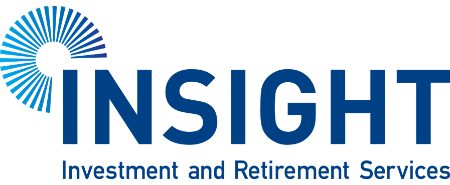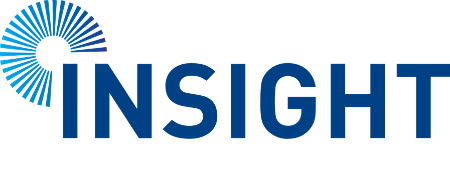We often think about superannuation benefits only in terms of providing funds for retirement. However, in the event of death, disability, or terminal illness, access to the funds is possible.
In times of need this can be an important injection of money, to pay out a mortgage, fund medical expenses or cover ongoing living expenses. Accessing super early can be the difference between financial stability and financial ruin.
However, there are a number of factors that one has to consider, before they can access their super. These generally relate to the circumstances leading up to the submission of a claim. We look at some of these below.
Accessing Super due to Death
If a member of a super fund dies, it is a requirement of the fund to payout the entire balance. For this to happen, usually a death certificate is the only requirement. The proceeds cannot be rolled over to another fund. They must be paid out of superannuation.
Important Considerations
When there is no nomination of a beneficiary, or an incorrectly completed nomination, a delay in the payment is inevitable. The Trustees need to seek more information to accurately determine who should receive the payment.
To create certainty as to who should receive the superannuation benefit in the event of death, a member can make a beneficiary nomination to their superfund. This beneficiary nomination tells the superannuation fund who should receive any death benefits.
When making a beneficiary nomination, the member must make either a non-binding or binding beneficiary nomination.
A non-binding nomination is merely an indication to the super fund of who the intended beneficiary should be.
A binding nomination binds the super trustee to make the payment to the nominated beneficiary. Importantly, a binding nomination is only valid if the beneficiary is a SIS Dependant. (This in itself is a topic for another day).
Making a Disability (Permanent Incapacity) Claim
In the event a member is no longer likely to work, because of physical or mental illness, they can apply for a disability benefit, from their superannuation fund.
A disability benefit is a lump sum payment made to the member once they meet the criteria of permanent incapacity. The Trustees of the super fund will deem a member as permanently disabled if they are satisfied that due to physical or mental health, the member is unlikely to ever engage in gainful employment for which the member is qualified by education, training, or experience.
If the trustee approves the members request for funds, there are no cashing restrictions on the benefit. This means that there is no limit on withdrawals of funds from the super fund.
Important Considerations
There are a number of considerations that require attention when requesting a release of funds due to permanent incapacity. A large and complicated issue is one of taxation.
While there is no cashing restriction, a permanent incapacity benefit is subject to a complicated tax formula. These calculations require a thorough understanding of superannuation tax law.
In its simplest explanation, tax payable is based on how long the member has worked for and how many days the member has until retirement.
Accessing Super due to Temporary Incapacity
The temporary incapacity rules allow a member to claim some of their superannuation benefits as an income stream, if they are temporarily unable to work, as a result of poor physical or mental health.
The amount a member can claim is based on their pre-disability income. The definition of pre-disability income is the members earnings for the previous twelve months prior to cessation of work.
Important Considerations
Benefits paid from superannuation as an incapacity benefit will generally be subject to taxation. However, the total tax payable on the benefit payment will depend on a number of factors, such as taxable components of the superannuation account and the age of the member.
Claiming a Terminal Illness Benefit
If a member receives a diagnosis of a medical condition that is likely to cause death within 24 months they may be eligible for a terminal illness benefit payment, from their superannuation fund.
This payment is subject to a number of conditions, namely;
- Two medical practitioners must certify the member is likely to die as a result of the diagnosis within 24 months;
- one of these medical practitioners must be a specialist in the illness the member is diagnosed with;
- the certifications provided by the practitioners must not have expired.
When a member meets these conditions, they are eligible for a superannuation benefit payment with no cashing restrictions.
Important Considerations
When a member receives a diagnosis from a specialist, it is important the specialist is unambiguous in stating the time the member has left to live. If the specialist says the member has around 24 months or the member has 2-3 years left to live, the trustee of the superannuation fund will likely reject the terminal illness claim. The law binds the Trustee to ensure the members has less than 24 months to live.
Importantly if the member makes a recovery, or they surpass the timeframe prescribed by the specialist, they do not have to repay the superannuation benefit.
The Role Insurance Plays
The above examples show that super plays an important role in the event of a member’s death, disablement or diagnosis of a terminal illness. Super is not just about retirement.
However, it is dangerous to think that superannuation contributions on their own are a suitable insurance policy – after all what is a person to live on in retirement, if they use all of their superannuation money now?
This is why many superannuation funds offer different types of insurance, such as;
- Life Insurance
- Total & Permanent Disability Insurance
- Income Protection Insurance
A superannuation plan, in addition to an insurance policy, ensures the protection of the person and their retirement funds in the event of death, disability or disablement.
Super Rules are Complicated
As with all things super, there are many things to consider when applying for insurance cover inside a super fund and seeking advice can ensure your insurances and super fund are setup correctly to help you achieve your insurance goals.
Contact Us
At Insight IRS we offer all prospective clients a complimentary initial meeting.
Call 1300 551 267 or Email great.advice@insight-irs.com.au



